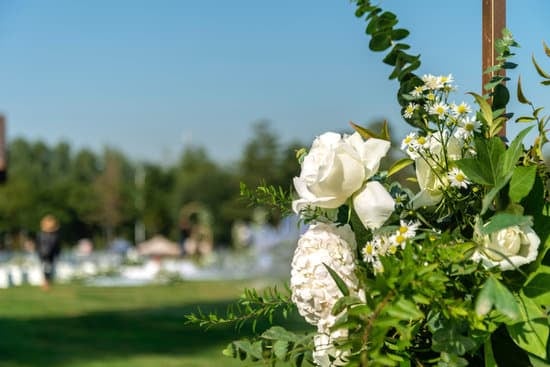A wedding is a monumental event that symbolizes the union of two individuals in love, surrounded by their closest family and friends. Understanding the duration of a wedding is crucial in ensuring that every aspect of the celebration runs smoothly and according to plan. So, how many hours is a wedding? This question goes beyond just picking a random number; it involves careful consideration of various factors that contribute to the overall timeline of the day.
From the intricate pre-wedding preparations to the heartfelt ceremony, lively reception, and everything in between, each moment of a wedding requires thoughtful planning and time management. The process begins long before the big day as couples diligently work on organizing and coordinating every detail to create their perfect event. Hours are spent selecting venues, choosing vendors, designing invitations, arranging accommodations for guests, and finalizing all logistical aspects to ensure a seamless experience for everyone involved.
The actual wedding day unfolds with a series of events that each play a significant role in the overall experience. From the solemn exchange of vows during the ceremony to the joyous celebration at the reception, every segment has its own designated time frame.
As we delve into understanding how many hours comprises a wedding, we will explore not only the typical duration of each component but also dive into additional elements that may influence a couple’s decision on timing for their special day.
Pre-Wedding Preparations
Planning a wedding is a meticulous process that involves numerous hours of preparation, organization, and coordination to ensure that the special day runs smoothly. From selecting the perfect venue to choosing vendors, creating a guest list, designing invitations, and planning the overall theme, there are countless tasks that need to be completed before the wedding day arrives.
Depending on the complexity of the event and the couple’s preferences, these pre-wedding preparations can take anywhere from a few months to over a year.
One of the key factors that determine how many hours are spent on planning a wedding is the level of detail that the couple desires. For instance, couples who opt for elaborate decorations, customized stationery, intricate floral arrangements, and unique entertainment options may find themselves dedicating more time to plan each aspect meticulously. Conversely, couples who prefer a simpler and more straightforward approach may require fewer hours to finalize their wedding details.
Moreover, hiring a wedding planner or coordinator can significantly impact the number of hours spent on pre-wedding preparations. Professional planners have extensive experience in orchestrating weddings and can streamline the planning process, saving couples valuable time and ensuring that all details are taken care of efficiently. By entrusting certain responsibilities to a knowledgeable expert, couples can alleviate stress and focus on enjoying their engagement period while still achieving their dream wedding vision.
| Aspect | Time Allocation |
|---|---|
| Vendor Selection | 10-20 hours |
| Guest List Management | 5-10 hours |
| Theme Development | 15-25 hours |
Ceremony Duration
A wedding ceremony is the heart of any marriage celebration, where couples come together to exchange vows and embark on a new journey together. The duration of a wedding ceremony can vary depending on various factors, including cultural traditions, personal preferences, and religious customs. On average, a traditional wedding ceremony typically lasts about 30 minutes to an hour, while modern ceremonies may be shorter or longer based on individual choices.
In traditional ceremonies, there are specific rituals and customs that need to be observed, which can extend the length of the proceedings. Religious ceremonies often involve readings, prayers, blessings, and symbolic actions that add depth and significance to the event. In contrast, modern weddings may opt for a more streamlined approach with personalized vows, music choices, and interactive elements to engage guests.
It is essential for couples to communicate with their officiant or wedding planner to discuss the structure and content of their ceremony in order to determine how long it will last. Being mindful of time constraints and including only meaningful elements can help create a memorable experience for everyone involved. Ultimately, the duration of a wedding ceremony should reflect the couple’s personalities and values while honoring traditions that hold significance for them.
Cocktail Hour
The cocktail hour is a beloved tradition in many wedding celebrations, serving as the perfect segue between the ceremony and reception. This period allows guests to mingle, enjoy some hors d’oeuvres and drinks, and set the tone for a festive evening ahead.
Typically held immediately after the ceremony while the newlyweds are taking their photos, the cocktail hour offers a relaxed atmosphere for guests to socialize and catch up with friends and family they may not have seen in a while.
Purpose of a Cocktail Hour
The cocktail hour serves multiple purposes beyond just providing refreshments. It acts as a buffer time for the bridal party to finish their photo sessions before making a grand entrance at the reception. Additionally, it gives guests an opportunity to shift gears from the solemnity of the ceremony to the celebratory mood of the festivities. The cocktail hour also allows for any necessary room flips or setup changes at the venue without interrupting guest enjoyment.
Average Duration
On average, a cocktail hour typically lasts around 1 to 1.5 hours, depending on various factors such as guest count, venue logistics, and overall timeline schedule. It’s essential to consider how many guests you have attending when planning this segment of your wedding day.
If you have a larger guest list, you may want to extend the duration slightly to ensure everyone has enough time to socialize comfortably. Conversely, if you have a smaller gathering, a shorter timeframe may suffice without stretching out the event unnecessarily.
Reception
The wedding reception is often considered the highlight of the wedding day, where the couple and their guests come together to celebrate this special occasion. The timeline for a wedding reception typically begins with the grand entrance of the newlyweds, followed by various events throughout the evening. Understanding how many hours a wedding reception lasts is crucial for planning out the schedule and ensuring that all planned activities can take place seamlessly.
Depending on the couple’s preferences and cultural traditions, a typical wedding reception can last anywhere from 4 to 6 hours. This duration includes time for cocktail hour, dinner service, speeches, toasts, cake cutting, and of course, dancing.
Factors such as the size of the guest list and venue restrictions can influence how long a wedding reception may run. It is essential to communicate with vendors and caterers to create a realistic timeline that accommodates all planned activities within the designated timeframe.
Creating a detailed timeline for the wedding reception is key to ensuring that everything runs smoothly on the big day. Couples should work closely with their wedding planner or coordinator to map out each segment of the reception, from when appetizers will be served during cocktail hour to when the last dance will take place.
By knowing how many hours are needed for each aspect of the reception, couples can relax and enjoy their special day without worrying about any scheduling conflicts or rushed moments.
| Event | Duration |
|---|---|
| Cocktail Hour | 1 hour |
| Dinner Service | 1-2 hours |
| Dancing/Party | 2-3 hours |
Dinner Service
Duration of Dinner Service
The dinner service at a wedding is a significant part of the reception where guests gather to enjoy a meal together in celebration of the newlyweds. The duration of the dinner service can vary depending on the type of meal chosen for the event.
Sit-down meals typically take longer than buffet options due to the service style. On average, sit-down dinners at weddings can last anywhere from 1.5 to 2 hours, allowing guests to savor each course and engage in conversations with their tablemates.
Buffet Options
For couples looking to provide a more casual dining experience or accommodate diverse dietary preferences, buffet options are a popular choice for wedding receptions. Buffet dinners usually take less time than sit-down meals since guests can serve themselves and choose their desired dishes at their own pace. The average time allocated for a buffet dinner at a wedding ranges from 1 to 1.5 hours, giving guests ample time to enjoy their meal while socializing with others.
Factors Influencing Dinner Service Duration
Several factors can influence how long the dinner service lasts at a wedding. The number of guests attending the event plays a significant role in determining the time needed to serve everyone at their tables or through a buffet line efficiently. Additionally, the complexity of the menu and service staff available can impact the speed of dinner service.
Couples should also consider any scheduled speeches or toasts during dinner that may extend the overall duration of this part of the reception. Planning accordingly and communicating with catering staff can help ensure that dinner service runs smoothly within an appropriate timeframe for a memorable wedding celebration.
Additional Events
When it comes to a wedding event, there are various additional activities that can be included in the schedule to enhance the overall experience for both the couple and their guests. These events usually take place within the reception portion of the wedding timeline and add personal touches to the celebration. From heartfelt speeches to fun-filled cake cutting ceremonies, these activities contribute to making the day even more memorable.
Here are some common additional events that may be included in a wedding schedule:
- Speeches: It is customary for key members of the wedding party, such as the best man, maid of honor, and parents, to give speeches during the reception. These speeches often share personal anecdotes, well wishes, and words of wisdom for the newlyweds.
- Toasts: A toast is a formal gesture where guests raise their glasses to honor and congratulate the couple. Toasts are usually given by close family members or friends and can range from sentimental to humorous.
- Cake Cutting: The cake cutting ceremony symbolizes the first task that newlyweds perform together as a married couple. It is also an opportunity for photo opportunities and signifies good luck and prosperity.
In addition to these traditional events, couples may choose to incorporate other personalized touches into their wedding day schedule. This could include cultural rituals, special performances, surprise guest appearances, or interactive games that engage attendees. By carefully planning out these additional events, couples can ensure that their wedding day reflects their unique love story and creates lasting memories for everyone involved.
Ultimately, incorporating these extra activities adds depth and significance to a wedding celebration. However, it is important for couples to consider how many hours they allocate for each segment of their event in order to maintain a smooth flow throughout the day while allowing ample time for all planned festivities.
Factors That Influence the Duration
When it comes to planning a wedding, one of the key factors that can significantly impact the event’s duration is the size of the guest list. The number of guests attending a wedding can vary widely, from intimate gatherings with close family and friends to large celebrations with hundreds of invitees.
The more guests in attendance, the longer certain parts of the wedding may take, such as greeting and interacting with each guest during reception or group photos after the ceremony. This means that understanding how many hours a wedding should last depends on the anticipated number of guests.
Venue restrictions are another crucial element that can influence the duration of a wedding. Some venues have specific time constraints or limitations on noise levels, which can affect the overall timeline of the event.
For instance, if a venue has a strict curfew for events, couples may need to plan accordingly to ensure that important activities like dancing or speeches are completed before the designated end time. Furthermore, certain venues may have regulations regarding setup and breakdown times, which could impact how long couples have access to space for their celebration.
In addition to guest count and venue restrictions, cultural traditions play a significant role in determining how many hours a wedding will last. Different cultures have unique customs and rituals that are typically incorporated into weddings, such as traditional ceremonies, dances, or symbolic gestures. These traditions add layers of meaning to the celebration but also require extra time for execution.
Couples who wish to honor their heritage or incorporate cultural elements into their wedding day should allocate enough time in their schedule to accommodate these special moments without feeling rushed. Overall, understanding these factors is essential for planning an appropriate duration for a wedding event.
Conclusion
In conclusion, understanding the duration of a wedding event is crucial for couples as they plan their special day. From pre-wedding preparations to the ceremony, cocktail hour, reception, dinner service, and additional events, each component plays a vital role in shaping the overall timeline of a wedding. By delving into these aspects, couples can better plan and allocate the right amount of time for each segment of their celebration.
One key aspect to keep in mind when determining how many hours is ideal for a wedding is to consider the size of the guest list and the complexity of cultural traditions involved. A larger wedding with numerous guests may require more time for various activities compared to a smaller, intimate gathering.
Additionally, certain cultural practices or rituals may add extra hours to the event schedule. Being mindful of these factors can help couples plan a seamless and enjoyable celebration for themselves and their loved ones.
Moreover, as couples plan their wedding timeline, it is essential to communicate effectively with vendors, planners, and other parties involved to ensure that everything runs smoothly on the big day. By collaborating with professionals and setting realistic expectations, couples can navigate through the intricacies of wedding planning with confidence and ease.
Ultimately, by taking these considerations into account when deciding how many hours is ideal for a wedding, couples can create a memorable and magical experience that resonates with them and their guests for years to come.
Frequently Asked Questions
How Many Hours Is a Wedding Day?
A wedding day typically lasts for around 12-14 hours, starting with the preparations in the morning and ending with the reception in the evening. This includes various ceremonies, photo sessions, and other activities throughout the day.
How Many Hours Do Weddings Last?
Weddings generally last anywhere from 4 to 8 hours, depending on the couple’s timeline and schedule. This duration includes the ceremony itself, cocktail hour, dinner, speeches, dances, and other traditional events that take place during a wedding celebration.
Is a 3 Hour Wedding Reception Long Enough?
Whether a 3-hour wedding reception is long enough depends on the couple’s preferences and priorities. Some couples may find this duration sufficient for their needs, especially if they prioritize a shorter event with limited formalities or have planned a more intimate gathering.
However, others might prefer a longer reception to allow more time for socializing, dancing, and enjoying the festivities with their guests.

I have been involved in marriages for over 20 years helping couples and singles understand more about them.





